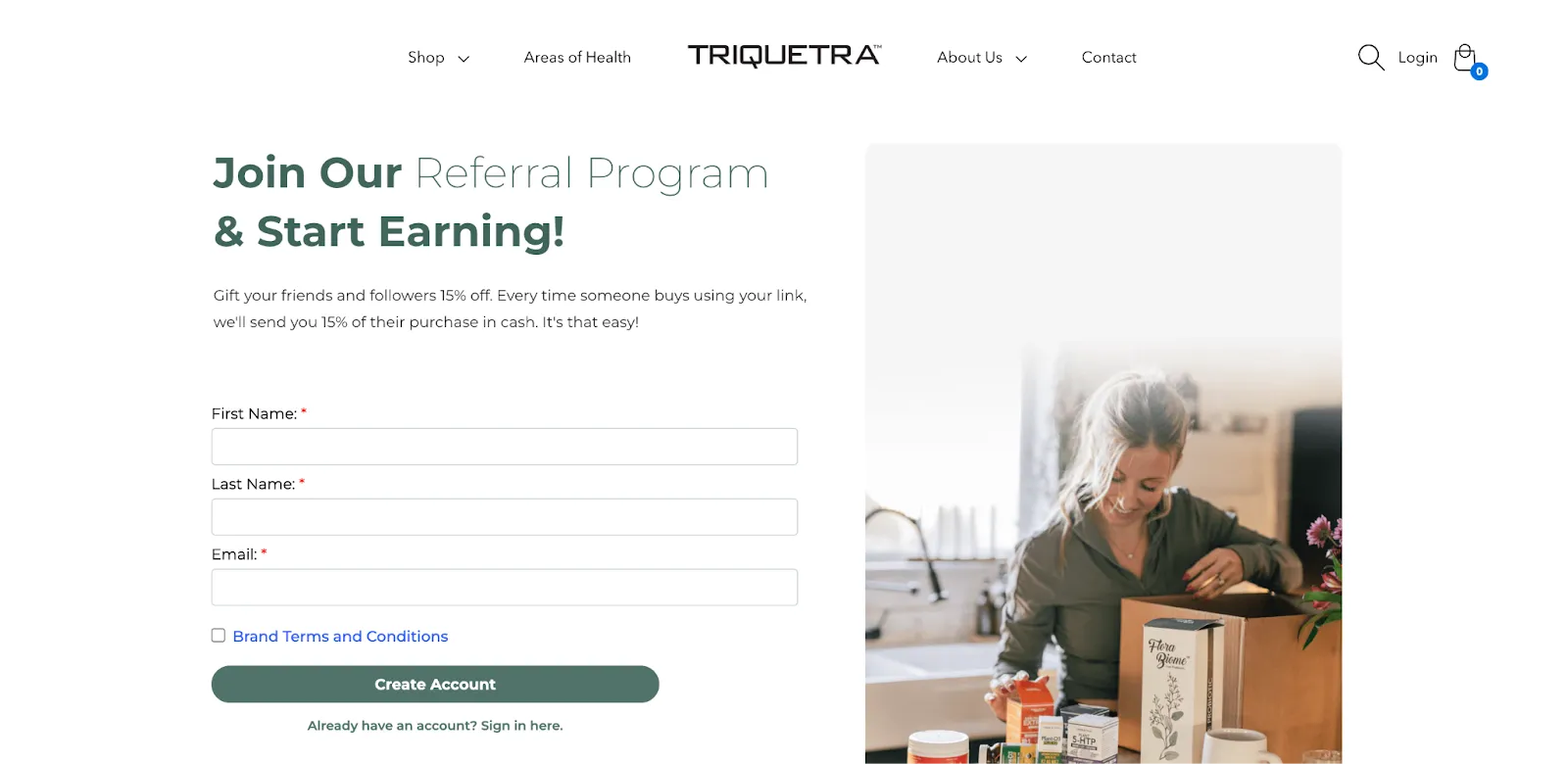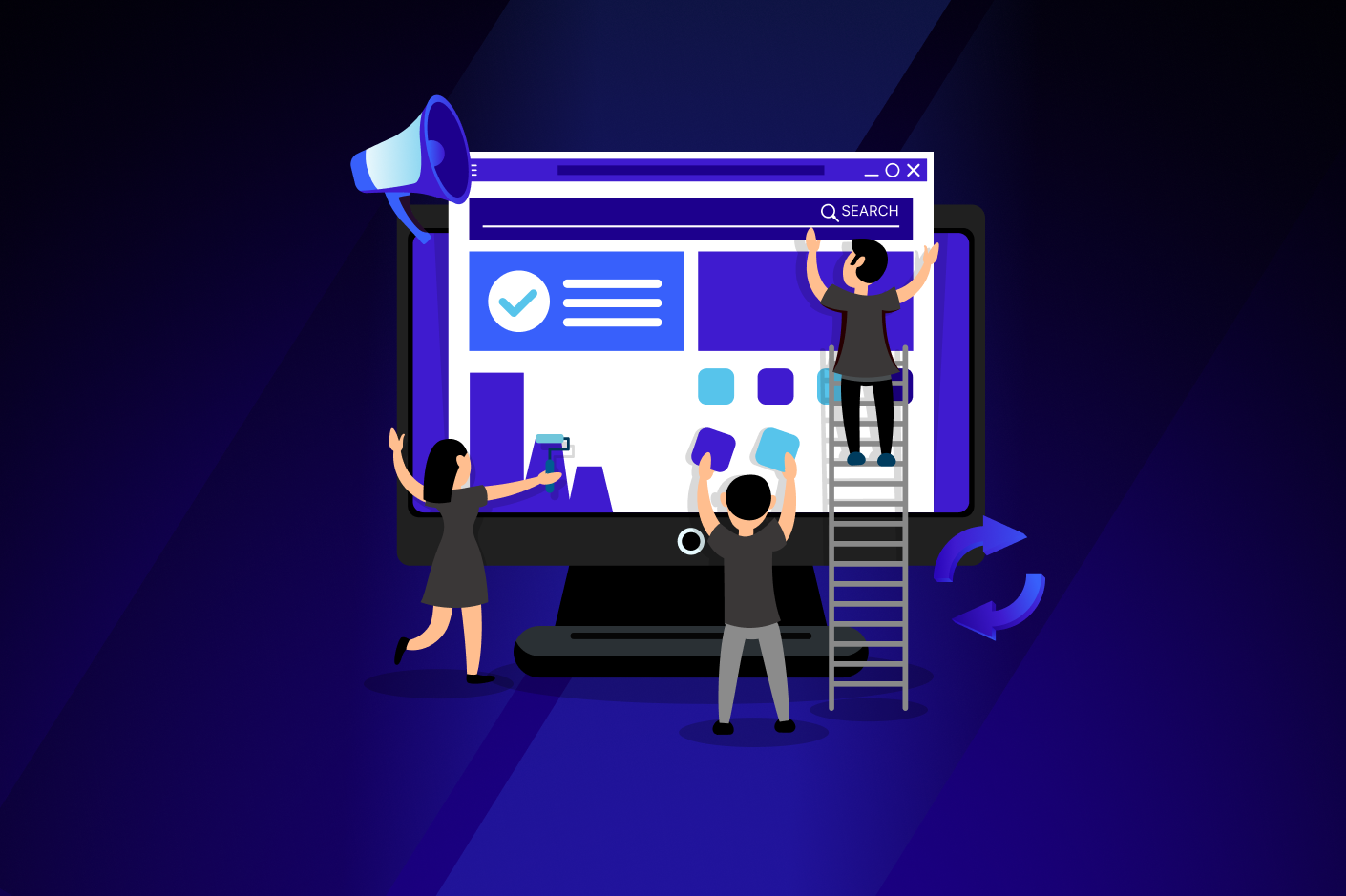Affiliate marketing is an excellent way to generate more revenue but there’s more to the marketing channel. Many businesses overlook its deeper benefits, missing out on real opportunities that let them tap new audience segments, build trust with customers, and drive sustainable growth.
Let’s dive into the six lesser-known advantages of affiliate marketing that can have a real impact on your online business.
Benefits of affiliate marketing for your ecommerce business

Source: Statista
Affiliate marketing is a smart, low-risk strategy that helps brands generate revenue and grow without upfront costs.
Besides improving your bottom line, the right affiliate marketing strategy increases your credibility, expands your reach, and helps with long-term scalability. Let’s look at the benefits in detail:
1. Increases brand credibility and trust
Consumers are more likely to trust recommendations from real people than traditional marketing. This is where affiliate marketing stands out.
Affiliates act as third-party endorsers, promoting your products through their established personal brand. Since they have already established credibility with their audience, their recommendations are more persuasive and believable than direct brand advertising.
Whether it’s from blog reviews, social media posts, or videos, content that affiliates make about your brand feels more like an authentic endorsement, acting as social proof for potential customers and making them more likely to try your products.
Over time, this consistent exposure would also help position your brand as a trusted name in your industry.
2. Your marketing cost is directly tied to sales generated
Unlike traditional ads, where you pay for impressions or clicks without guaranteed results, affiliate marketing ensures you only pay for actual conversions.
Affiliate partners earn a commission for every sale they bring in (tracking through their affiliate link or discount code). This motivates them to actively promote your products.
For example, Triquetra Health, a wellness brand, set up a well-structured affiliate strategy, onboarding 6K+ new affiliates. In just one month, these affiliates drove $150K+ in new revenue and expanded the brand’s presence with authentic user-generated content—all without upfront ad spend.

3. Reach new audience segments
A strong affiliate network—spanning content creators, industry experts, and niche influencers—helps you reach new and highly relevant customers across different marketing platforms.
Whether it's a fitness influencer promoting supplements or a tech blogger reviewing headphones, their endorsement introduces your products to a new and relevant audience segment that might not have discovered your brand otherwise, leading to higher-quality traffic, better conversion rates, and ultimately high ROI.
DadGang is a great example. Automating most of their workflow with Social Snowball, they drove word-of-mouth marketing with their affiliate program, driving $190K+ in new revenue.

4. Free content about your brand and its products
Affiliate marketing eliminates the need for in-house content creation. To promote your brand, affiliate partners usually produce content— blogs, social media posts, tutorials, reviews, videos— about your products in an authentic way.
You can repurpose this content for your marketing needs in many ways:
- Reshare them on your social media account.
- Include them in your email marketing.
- Use them as creatives for your paid ads.
- Add them to your website and product pages to drive trust.
What’s more, the variety in topics, content formats, and storytelling styles gives you additional benefits:
- Appeal to customers at different stages of their buying journey.
- Test different content to understand what works better without additional production costs.
- Promote your brand on different channels using content tailored to it.
Read more about how you can get quality affiliate marketing content for your brand.
5. Provides valuable market and consumer insights
Beyond sales, affiliate marketing gives you a clear picture of audience needs and preferences.
By analyzing your affiliate program’s performance, you can understand which products are in high demand, what type of content drives the most conversions, and which marketing messages resonate with different customer segments.
For instance, if a specific product consistently performs well through affiliate links, it could indicate a strong demand for similar products that you can capitalize on.
Comments on the affiliate marketer’s posts about your brand can help you understand audience sentiment, problems they face, requests they have, etc.
For instance, a skincare brand’s affiliate partner could receive comments from their audience about dry skin or acne, allowing the brand to develop new and relevant products and tailor their marketing accordingly.
These insights help refine your marketing strategy, improve your positioning, and optimize your overall sales funnel.
6. Creates an evergreen presence for your brand
Most paid marketing campaigns stop delivering results the moment you stop spending. Affiliate marketing campaigns create a longer impact for your brand.
The content that your affiliates publish—blogs, YouTube reviews, and social media posts —remains online long after it's created, continuing to drive traffic and conversions.
Affiliate-generated content is also improves your brand’s SEO. Product reviews, tutorials, and articles featuring your brand can rank on search engines and attract potential buyers for months or even years. Social media posts that link back to your website improve your domain authority and show Google’s algorithm that you’re a credible business.
This increases your visibility on search engines, bringing in long-term organic traffic and even new revenue without recurring costs.
7. Lower Customer Acquisition Costs (CAC)
Capturing new customers often requires a large digital marketing budget but paid advertising costs are unpredictable. Ecommerce brands can’t rely solely on traditional marketing channels.
Affiliate marketing efforts offer a more cost-efficient approach. Since affiliate commission structures are tied to sales, there’s no wasted spend on impressions or clicks that don’t convert.
As your affiliate marketing program grows, you can identify your most successful affiliates based on their performance, build a long-term relationship for consistent promotions from them, and even invest in similar types of affiliates. By optimizing your affiliate strategy, you can lower acquisition costs over time while driving higher conversions.
Sleep.me, for instance, reduced their CAC costs by 50% as compared to paid ads by investing in affiliate marketing.
Want to learn how to set up a high-performing affiliate marketing strategy? Read our guide here.
Invest in affiliate partnerships for long-term growth
There’s no doubt that affiliate marketing is an effective customer acquisition channel for brands. It helps build credibility, reach highly targeted audiences, and drive consistent revenue without the high upfront costs of traditional advertising. With the right affiliates, you gain access to engaged communities that trust their recommendations, leading to higher conversion rates and long-term customer relationships.
Plus, the performance-based model makes sure that you only pay for actual results, making it a cost-effective strategy for sustainable growth.

Frequently asked questions
Can small businesses benefit from affiliate marketing?
Yes, small businesses can benefit greatly from affiliate marketing.
It helps them reach a larger audience based on the affiliates they partner with. Unlike paid ads which are based on pay-per-click and have significant upfront costs, brands only need to pay commissions when affiliates drive actual sales.
Due to this, affiliate marketing is a cost-effective way to increase sales and brand awareness without taking on the risks of traditional advertising.
How do I find the right affiliates for my brand?
To find the right affiliates for your ecommerce brand, look for content creators, bloggers, or influencers in your niche who have a strong online presence. Ensure that their audience is highly engaged and aligns with your target market.
You can use affiliate networks, social media, and keyword research to identify different types of affiliates who can effectively promote your products.
How can I track the performance of my affiliate program?
You can track the performance of your affiliate program by monitoring key metrics such as:
- Revenue: Total referral revenue generated by affiliates.
- Orders: Number of referral orders completed.
- New Affiliates: Number of new affiliates added to your program.
- AOV (Average Order Value): Average purchase value from affiliate-driven sales.
- Commission Rates: Total incentive or commission payouts (paid + unpaid).
- ROI (Return on Investment): Revenue earned per dollar spent on commissions.
- CPA (Cost Per Acquisition): Average commission cost per order.
This helps you understand the overall performance of your program, the ROI from your efforts, and compare how different affiliate partnerships and channels are performing. You can then double down on strategies that work best for your online marketing.
Tools like Social Snowball give you access to real-time data directly from your dashboard. You can filter data by date range, track performance by program or affiliate, and export reports for deeper insights.










